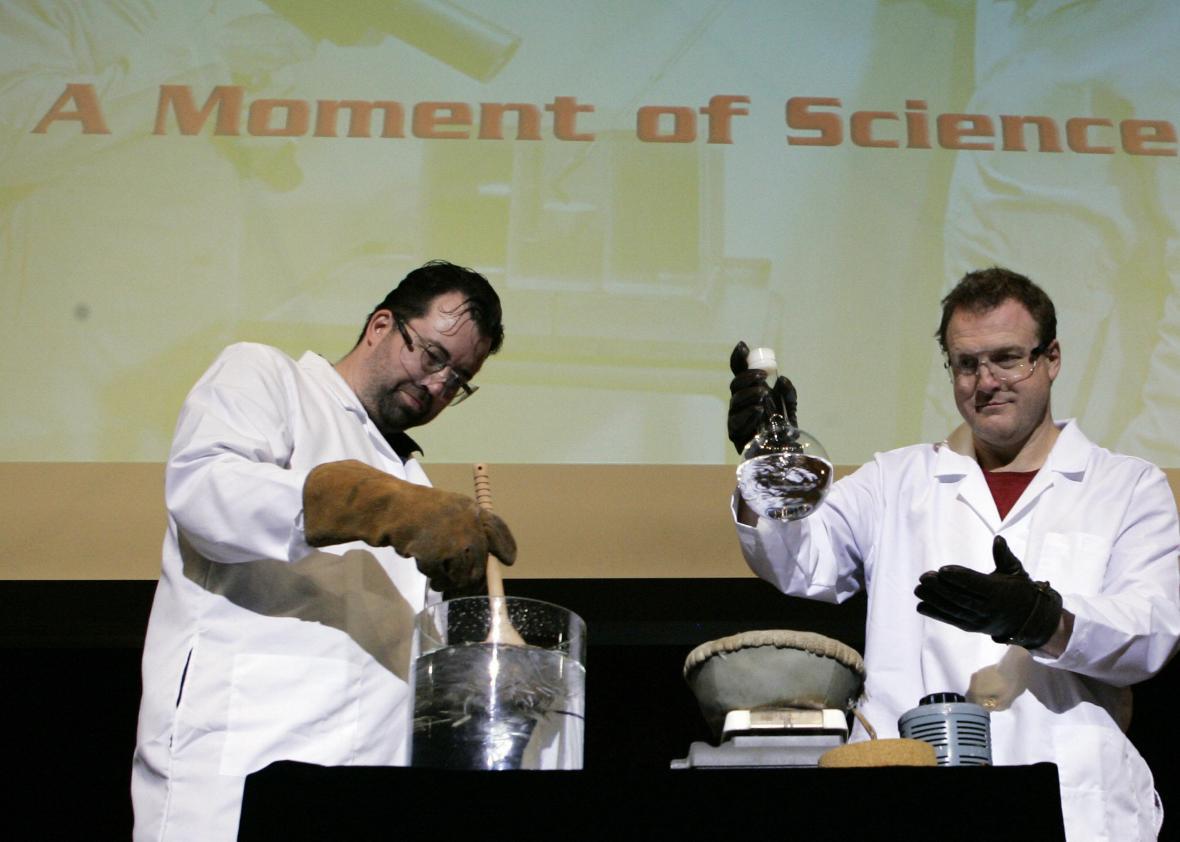Did you know that if you attach a weighted stick to the back of a chicken, it walks like a dinosaur? Or that every mammal has an average bladder-emptying rate of 21 seconds?
No, you did not know (or care to know) these things, but now you do! Thanks to this year’s winners of the Ig Nobel Prizes, a parody award ceremony run by the science humor magazine Annals of Improbable Research. Now in its 25th year, the spoof-Nobels do what all good satire should do: “make people laugh, and then think.” Every September at Harvard University, real Nobel laureates present 10 prizes to scientists for their absurd (but thought-provoking) research.
The experiments can seem more like the brainchildren of teenage boys than of respectable adults. This year’s honorees include two Austrian researchers who wanted to find out whether it was physically possible for Moulay Ismail the Bloodthirsty, the 17th-century Sharifian Emperor of Morocco, to father 888 children. They won the mathematics Ig for their paper “The Case of Moulay Ismael—Fact or Fancy?”
“It’s a lot of work it turns out,” Elisabeth Oberzaucher, a co-author on the study, told the Guardian. “Moulay had to have had sex once or twice a day, which you might actually regard as a low number, but if you think this is every day, every single day for an entire life, this is quite a lot.”
University of Arizona entomologist Justin Schmidt and Cornell graduate student of neurobiology and behavior Michael Smith won the physiology and entomology Ig for creating the “Schmidt Sting Pain Index,” which rates the pain people feel after getting stung by various insects. Smith pressed bees against 25 different parts of his body until they stung him. Five stings a day for 38 days later, Smith concluded that the most painful sting locations were the nostril, the upper lip, and the penis. Ouch.

PeerJ Journal
As silly as they sound, not all of the Ig awards lack scientific applicability. A cohort of scientists from 12 different countries won in the medicine category for accurately diagnosing patients with appendicitis based on an unusual measurement: speed bumps. They found that patients are more likely to have appendicitis if they report pain during bumpy car rides. Their work was published in the British Medical Journal.
Other 2015 winners include a chemical recipe to partially un-boil an egg, an experiment measuring the biomedical benefits of passionate kissing, and a discovery that “what doesn’t kill you will only make you more risk-loving.” Three researchers also confirmed that the equivalent of the word huh exists in every human language, which secured them the literature Ig.
Digging into the long list of past winners since 1991 yields some intriguing results: a software called PawSense that detects when a cat is walking across your computer keyboard, a suit of armor that protects against bear attacks, and discovery of homosexual necrophilia in a mallard duck. L. Ron Hubbard even won the literature Ig for his Scientology epic, Dianetics.
All these bizarre experiments have just one thing in common. They’re improbable. As Marc Abrahams, editor and co-founder of Annals of Improbable Research and emcee of the annual celebration, wrote in Slate in 2012:
It can be tempting to assume that “improbable” implies more than that—implies bad or good, worthless or valuable, trivial or important. Something improbable can be any of those, or none of them, or all of them, in different ways. Something can be bad in some respects and good in others. Improbable is, simply, what you don’t expect.
And what you don’t expect can be a powerful force for not only entertaining science, but also for the boundary-pushing science we call innovation.
*Correction, Sept. 18, 2015: Due to a photo provider error, a caption on this blog post misspelled chemist Daniel Rosenberg’s name.
